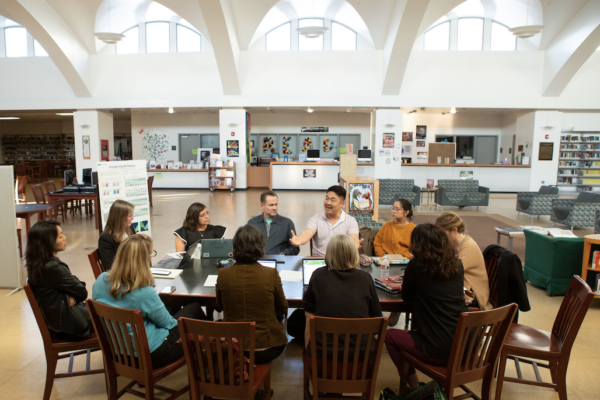School districts spend billions of dollars each year on professional development for teachers, but do these investments pay off in improved results for students? A new research paper explores the implementation of a teacher learning program, its impact on student achievement, and the extent to which that effect is sustained over time.
The researchers—Ariana Audisio, Rebecca Taylor-Perryman and Tim Tasker of Leading Educators and Matthew P. Steinberg of George Mason University—compare the change in student proficiency in math and English language arts among schools participating in the nonprofit Leading Educators’ fellowship model before and after implementation of the program to performance at similar schools in the district.
Teachers in four states participated in the fellowship program for two school years—2015-16 and 2016-7—receiving lessons and coaching while continuing to teach. Some were involved in the fellowship for one year and some for both.
The results showed that participation in the program by teachers and some administrators led to significant improvements in student test scores, especially in math—an impact that lasted at least two years after the end of the fellowship. The results were stronger when teachers received two years of training and when teachers chose to join the program, rather than being chosen by an administrator.
This research provides more insight into how school districts should approach professional development to improve teachers’ capabilities and students’ academic performance.
—Gunjan Maheshwari
